Austra’s early show at Sugar Nightclub on Saturday night came as a blessing. Even with two encores, the show wrapped up at 10:00 PM sharp. The show’s early curfew allowed those scheduled to run in The Goodlife Fitness Marathon on Sunday morning to go home, carb-load and get some rest, while other, more thrill seeking concert-goers, were able to make it down to Lucky Bar to catch Fucked Up; unfortunately, this reviewer was part of the carb-loading tribe, though I heard Fucked Up played a hell of a show at Lucky.
The night began with an impassioned opening set by Moon King. Led by parka-clad singer, Daniel Benjamin, Moon King did an excellent job of warming up the non-parka clad crowd (Sugar Nightclub has a mandatory coat check*—I’m still unsure how Benjamin managed to sneak past the eagle-eyed security staff) with a rousing and energetic set. Along with guitarist/harmonist, Maddy Wilde, Benjamin cavorted his way through an engaging set of songs ranging from beautiful pop-induced harmonies to gritty punk rock songs. Moon King is strikingly young, and on Saturday night they proved themselves to be a band worth watching: I picked up their debut 12”, Obession, and it is most excellent.
Sugar was near capacity by the time Austra took the stage. The first thing that struck me, aside from the band’s beautiful, and aptly fitting umbrella light display on stage, was how tiny lead singer Katie Stelmanis is. One would never guess, from listening to Austra’s powerful and operatic vocals, that Stelmanis incredibly short in stature. Even with platform shoes on, Stelmanis essentially peered over the monitors lining the front of the stage for most of the band’s set.
Flanked by a band clad in some similarly interesting apparel, including the keyboardist’s spandex onesie, Stelmanis gave an energetic and delightful performance to wrap up the band’s long North American tour. The show, mostly comprised of material from Austra’s newest album, Olympia, which was released earlier this year, fully displayed how far Austra’s come since their debut, Polaris-Nominated release, Feel It Break.
While the crowd was more responsive to material from Austra’s first album, particularly standout track, “Lose It” which most of us sang along to with full vibrato, the band’s darker new tracks were every bit as stunning, proving that Austra wasn’t the slightest bit affected by the sophomore slump. While Olympia is indeed a grower, the songs performed live on Saturday night were undoubtedly more raw and engaging in their live skin. As we walked down Sugar’s massive staircase, and out into the early evening air, we did so with massive smiles slapped upon pink cheeks.
*I heard many-a complaint about Sugar’s mandatory coat check policy on Saturday night. While I fully understand the safety logistics motivating the coat check, I agree with other patrons that the three dollar charge for each checked item is a bit steep (one person I talked to was charged $9, as she had to check three items). I think it would be great if Sugar lowered their charge, or donated all monies collected from their mandatory coat check to deserving local charities.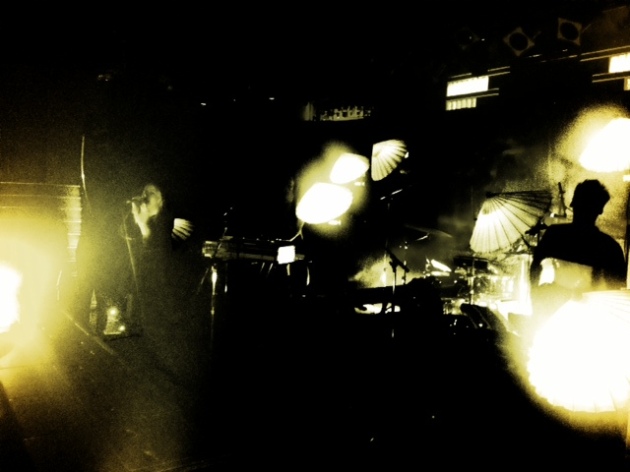
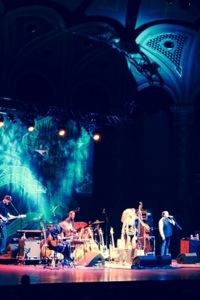
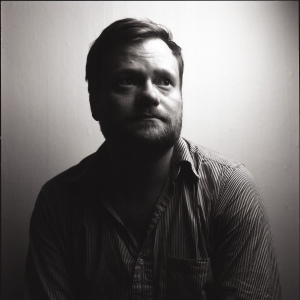
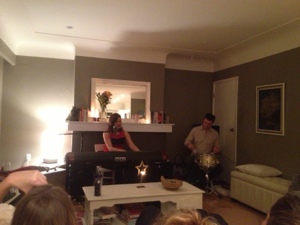
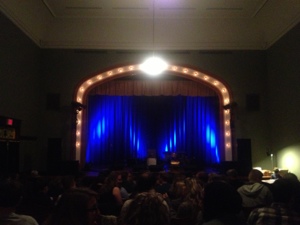
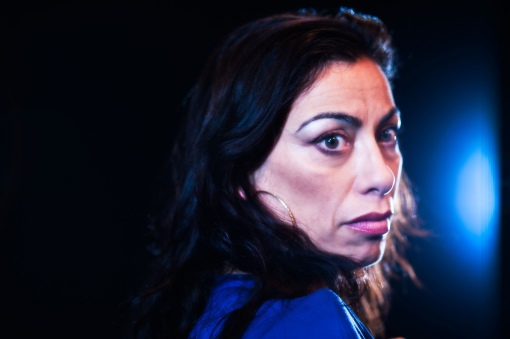




Recent Comments